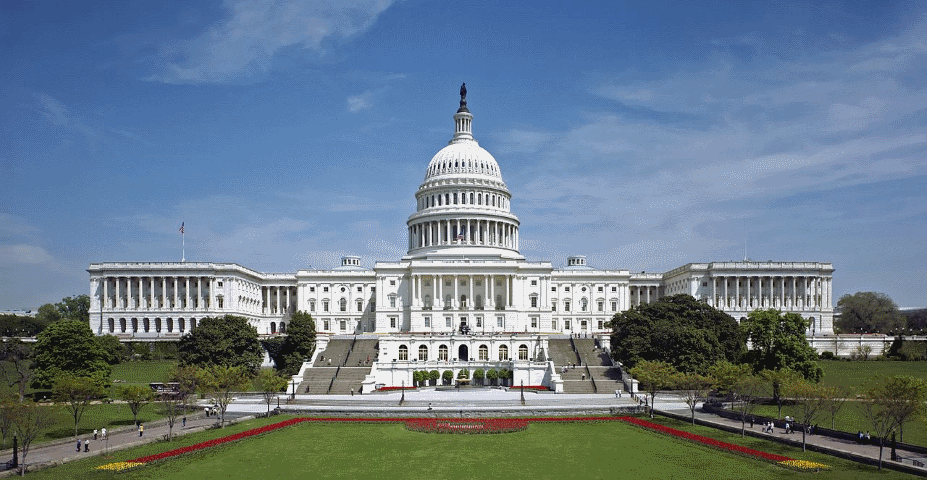Divided Congress paves way for drug price reforms on Biden's watch

Unless president Donald Trump is successful with legal challenges, Democratic rival Joe Biden looks to have won the White House in last week’s election but faces the challenges of a divided Congress when it comes to implementing important health policies.
Making healthcare affordable is one of Biden's goals as many Americans struggle to pay for healthcare, including those who have lost their jobs in the pandemic and with it their health insurance schemes.
High drug prices was a touchstone issue in the 2016 elections and Biden has also made this a priority in his campaigning.
Brian Bewley, partner in the life sciences and healthcare practice at corporate law firm Goodwin, said: "President-elect Biden has consistently prioritised affordable healthcare for all. This includes reducing drug costs to consumers in the United States.
"In order to accomplish this, Biden has proposed allowing US Government agencies to negotiate directly with pharmaceutical manufacturers on drug pricing, enacting legislation to effectively limit or cap drug prices (brands and generics), and allowing consumers to purchase drugs from foreign countries.
"If any of these are successful, it could materially impact profit margins for the drug manufacturers."
The Senate elections have not been decided and at the time of writing the House of Representatives is set to remain under control of the Democrats by the slimmest of margins.
This means that Biden will have to use all his charm and persuasion to bring legislators in line in a Congress that is reflective of the rifts in US society, although he may have support for drug price reform, according to Bewley.
He said: "Right now, the Senate majority hangs in the balance with Democrats and Republicans holding at 48 seats each, with four seats outstanding. That said, it appears that if Republicans have a majority, it will be by a slim margin.
"When it comes to President-elect Biden’s agenda on reducing drugs costs, he may have bi-partisan support – especially when you consider that the current administration under President Trump also tried to address drug pricing and transparency."
According to Bewley many states have been more aggressive than the Federal government on drug pricing and at least 15 have passed prescription drug price transparency laws, requiring manufacturers to report price increases exceeding a certain threshold.
These laws are meant to help states identify generics for their own prescription drug development programmes.
"I don’t see states being a major obstacle or impediment to President-elect Biden’s agenda on drug pricing as the states have, in many ways, outpaced their federal government counterpart," said Goodwin.
Obamacare and COVID-19
Biden is an architect of the Affordable Care Act and helped to implement the legislation as vice president of the Obama administration.
He will attempt to expand this legislation, nicknamed "Obamacare", after Trump’s Republicans unsuccessfully tried to unpick it with their withdrawn American Health Care Act.
A likely addition to the legislation is a new “public option” to cover uninsured Americans and expansions of Medicare and Medicaid cover to older people and those on lower incomes respectively.
In the shorter term the COVID-19 pandemic will be a major focus as the country gears up to put together a mass vaccination programme.
Biden is an advocate of mask wearing, saying that doing so could save almost 70,000 lives.
But whether governors of Republican-leaning states will stand by his proposal to make mask-wearing mandatory outside their household is another matter.
The Trump administration became increasingly resistant to measures such as mask-wearing and social distancing played a part in the election, with Trump advising his supporters to attend polling stations in person and Biden urging his voters to use postal ballots instead.
Biden has set out proposals to improve testing and tracing, with the federal government taking responsibility for personal protective equipment (PPE) for healthcare workers.
Other measures include allowing the Centers for Disease Control to take the lead on how to control the disease with social distancing measures.
His seven-point pandemic plan also outlines proposals to protect higher-risk groups such as older people and these from certain ethnic minority groups.
He also plans to rebuild links with the World Health Organization, which Trump famously defunded after blaming it for failing to effectively control the COVID-19 pandemic.
As the world digested the news that Pfizer/BioNTech’s vaccine could be more than 90% effective Biden said he will make distributing a vaccine a priority.
With the rising cases every day, it’s the part of Biden's plan that's less likely to face political pushback, although there is distrust among the public about vaccines.













